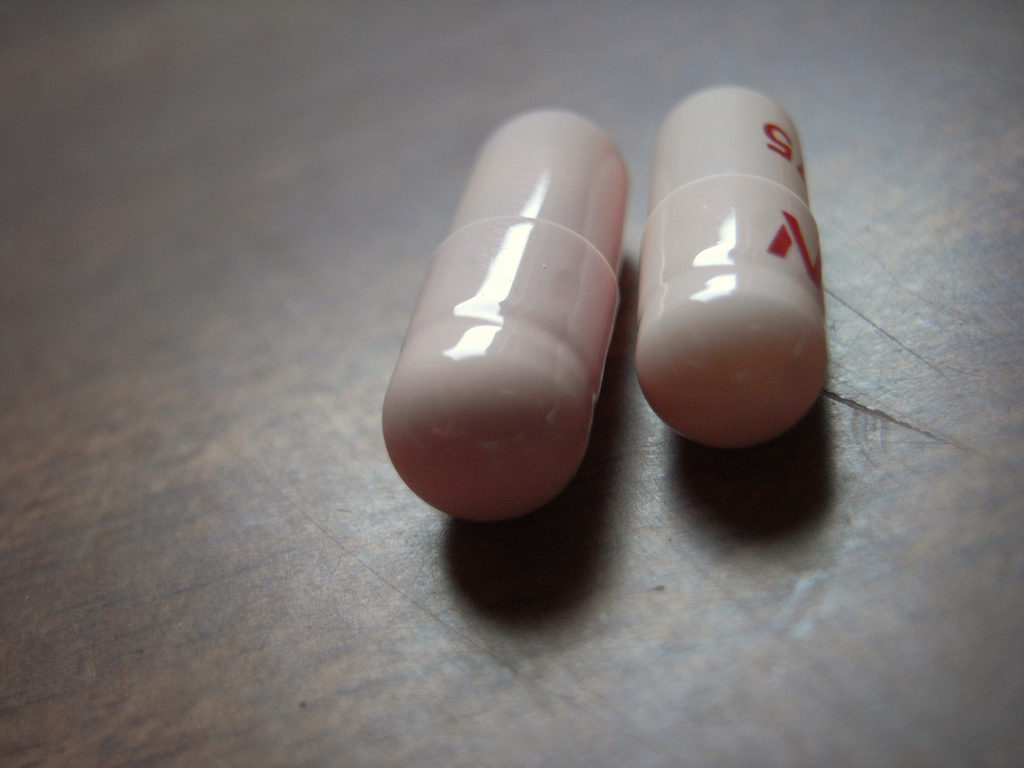New research, led by Paul Andrews at McMaster University, suggests that antidepressant (AD) use is associated with increased risk of death from any cause, as well as increased risk of heart problems. The older TCAs (tricyclic antidepressants) and the newer SSRI/SNRI (selective serotonin reuptake inhibitors/serotonin-norepinephrine inhibitors) both had this effect, as did other medications such as MAO inhibitors.
According to Andrews, “In the general-population samples, ADs increased mortality risk by 33% and the risk of experiencing a cardiovascular event by 14%.”

Other researchers have proposed that those on antidepressants might have more severe depression, increasing the risk of death whether they took such drugs or not. However, when Andrews and his colleagues controlled for pre-medication depression, they found that the risk increased. When pre-medication depression was accounted for, TCAs increased the risk of death by 26%, and SSRIs increased the risk of mortality by 49%. Medications classed as “other” (such as bupropion, mirtazapine, trazodone, and MAO inhibitors) were found to generate a 75% increased risk of death.
This finding is particularly concerning in light of the research literature repeatedly questioning the efficacy of antidepressant medications. In fact, Andrews writes that “One possible explanation is that AD use only leads to a transient reduction in depressive symptoms […] depressive symptoms under prolonged AD use (i.e., months or longer) are higher than they would be without medication.”
Andrews and his colleagues explain the ways that antidepressants affect broad systems throughout the body.
“While each AD probably has a distinct symptom profile, there is good reason to suspect that they all degrade the functioning of some adaptive processes in the body.”
TCAs primarily affect the norepinephrine and dopamine systems. According to the researchers, “Norepinephrine affects the sympathetic nervous system and parts of the brain involving attention and arousal. Dopamine has broad effects, including immune, endocrine, kidney, gastrointestinal, and pancreatic functions, as well as the regulation of body weight and lifespan length.”
SSRIs/SNRIs primarily affect the serotonin system, which impacts numerous bodily processes.
“Serotonin regulates growth, development, reproduction, neuronal activity, digestion, immune function, thermoregulation, tissue repair, maintenance, electrolyte balance, mitochondrial function, and the storage, mobilization, and distribution of energetic resources. By blocking the transporter in the brain and periphery, selective serotonin reuptake inhibitors (SSRIs), which are the most widely prescribed ADs, could potentially degrade many adaptive processes.”
The research was published in the journal Psychotherapy and Psychosomatics. Andrews and the other researchers performed a meta-analysis to examine all the relevant trials of antidepressant medications that reported detailed statistics regarding mortality and controlled for potential confounding factors. Of the 16 studies included in the meta-analysis, 11 primarily examined cardiovascular patients, while the remaining 5 did not. The total number of participants was 378,400, of whom 140,787 were taking antidepressant medications.
Interestingly, AD use did not appear to increase the risk for patients who already have severe heart problems. In some previous studies, antidepressants have been shown to improve mortality in cardiovascular patients.
The researchers explain that both SSRIs and TCAs have an anticlotting effect, which can be quite helpful for people with cardiovascular problems. However, they note that this same effect can be problematic for the general population. For the average person, “ADs could inhibit clotting and increase the risk of cardiovascular events, particularly those associated with abnormal bleeding (e.g., hemorrhagic stroke).”
The researchers suggest that doctors should take care before prescribing ADs.
“When the patient has no cardiovascular disease, our results should give the prescriber pause because they suggest ADs increase health risks, including the risk of death.”
****
Maslej, M. M., Bolker, B. M., Russell, M. J., Eaton, K., Durisko, Z., Hollon, S. D. . . . Andrews, P. W. (2017). The mortality and myocardial effects of antidepressants are moderated by preexisting cardiovascular disease: A meta-analysis. Psychotherapy & Psychosomatics, 86(5), 268-282. DOI: 10.1159/000477940 (Link)















“TCAs increased the risk of death by 26%, and SSRIs increased the risk of mortality by 49%. Medications classed as “other” (such as bupropion, mirtazapine, trazodone, and MAO inhibitors) were found to generate a 75% increased risk of death.”
The medical community made a promise to humanity to “first and foremost do no harm.” Thus, it should be illegal for the medical community to be passing out the antidepressants like candy, which is what they are still doing. In our current society, one cannot go to a hospital for any reason without an idiot doctor asking you if you are depressed. It should be illegal to force, or coerce with lies, anyone to take the antidepressants for any reason. Bupropion is NOT a “safe smoking cessation med.” It should also be illegal for the medical community to call the antidepressants “safe meds,” since they are not. And how embarrassing for the medical community that the newer antidepressants are even more deadly than the older ones. What happened to progress, doctors?
Report comment
Someone Else’s comment makes me wonder why we can’t sue doctors for fraud instead of malpractice. The fraud is easy to prove, and normally, there’s no defense. In real life, if someone sells a gasoline additive by claiming it is safe and effective, but knows it will destroy a certain percent of car engines and not do much good in the rest, that’s fraud.
Doctors promote antidepressants with the same kinds of statements about safety and effectiveness. When they are defending a malpractice lawsuit, they claim they adhered to “best practices.” All that means is “Everyone else does it too.” It would fall flat in reality-land.
Report comment